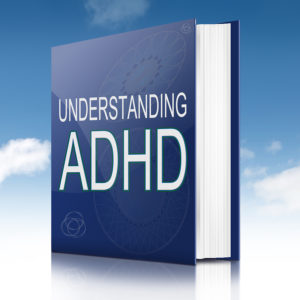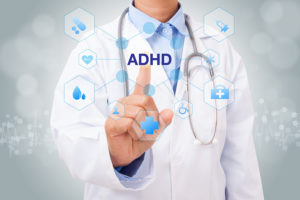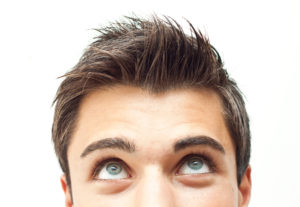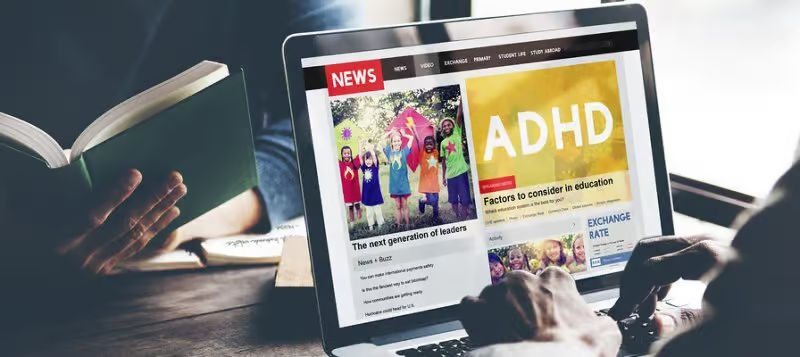Table of Contents
Key Takeaways
- B-Vitamins and multivitamins are crucial for brain health and neurotransmitter synthesis.
- Acetylcholine’s role in ADHD can be supported with nootropics like ALCAR and CDP-Choline.
- Nootropics like Ashwagandha and Bacopa Monnieri help repair damaged neuroreceptors in ADHD.
- Noopept enhances cognition, memory, and provides neuroprotection.
- Combining specific nootropics with essential vitamins can optimize brain function for managing ADHD symptoms.
Depending on the severity of your ADHD symptoms, you may be able to use nootropics as an alternative to prescription stimulants like Adderall, Ritalin, Vyvanse and their variations.
I experimented for a year by using nootropics in place of the 20 mg of Ritalin I had been using 3-times a day for several years. And for the most part, I was successful in taming my Adult ADD symptoms.
Adult ADD Nootropic Stack
The ADD/ADHD stack I use includes:
- Mind Lab Pro
- Performance Lab® Energy – twice per day
- CDP-Choline – twice per day
- ALCAR – 750 mg 1-time per day
- L-Tyrosine – 500 mg 3-times per day
- Sulbutiamine – 400 mg twice per day
- Aniracetam – 750 mg twice per day
- Vinpocetine – 10 mg 3-times per day
- Performance Lab® Omega-3 – 3 GelCaps per day
- 1 tablespoon unrefined Coconut Oil or MCT Oil– 3-times per day
- Performance Lab® NutriGenesis Multi – 4 caps per day
During my one-year stimulant holiday, the ingredients in Mind Lab Pro along with L-Tyrosine, CDP-Choline, and ALCAR (included in Performance Lab Energy) kept my dopamine, norepinephrine, and acetylcholine levels high enough to maintain focus, motivation and improve my memory. Vinpocetine kept my brain blood flow at optimal levels. And Aniracetam and Sulbutiamine improved my mood.
But after a year I decided to go back to using 20 mg of Ritalin twice per day. Because my workload had me writing 10 hours per day. And maintaining working relationships with 2 or 3 clients at once.
By adding Ritalin back to my stack I was able to reduce the time it would take to complete a project from 3 days to 1 ½ days. Proof to me that my overall brain health couldn’t make it with nootropics alone.
The beauty of continuing to use L-Tyrosine, CDP-Choline, and ALCAR even after I started using Ritalin again was that I avoided the stimulant “crash” that is so common late afternoon when using stimulants. And I was able to reduce the original 20 mg Ritalin 3-times per day down to only twice per day.
And I have not experienced building up tolerance to Ritalin that is so common when using stimulants to treat ADD or ADHD.
Your situation may be different, or ADHD symptoms not as severe. Only you can decide if nootropics can replace ADHD meds. The stack I describe on this page is designed to be used with or without stimulant meds.
Whether you use this stack with meds or without, you’ll need to discover for yourself what dosages of each nootropic are ideal for you. Because the amounts that work for me may not work as well for you. You may need less NALT and/or ALCAR.
Experimenting is the key to success with nootropics. And knowing as much as you can about what’s going on in your brain that needs to be fixed. But after many years of recommending this ADHD nootropic stack to people just like us around the world, we know this works.
The pre-made nootropic stacks mentioned in this post include:
Prescription “Smart Drugs” vs. Nootropics for ADHD
This post is in response to many emails and questions I’ve been getting about how to treat Attention Deficit/Hyperactivity Disorder (ADHD) or Attention Deficit Disorder (ADD) with nootropics.
So if you are dealing with ADHD, hopefully this post will help. Especially if you are using stimulants like Ritalin, Adderall, Vyvanse, Focalin, or any of the other stimulant prescribed for ADD/ADHD. Or you are trying to deal with ADHD naturally by avoiding prescription stimulants.
This information can also help if you are a student or executive who uses prescription “smart drugs” like Adderall or Modafinil to boost productivity.
Here we’ll dig into the causes of ADHD or ADD in your brain. Symptoms associated with ADHD. And what you can do using nootropics, or nootropics stacked with stimulants to correct ADHD symptoms.
I’ll also include ways to potentiate the effectiveness of prescription stimulants with nootropics so they work better.
If you’ve never ‘officially’ been diagnosed with ADHD, but some of this resonates with you, you could be ADHD or ADD. And this may point you to some answers.
I’ve been ADD all my life. (ADD is ADHD without the hyperactivity). But it wasn’t until about 16 years ago, that a very wise psychiatrist identified what was going on. And why I had been struggling with focus and other problems with behavior. That no amount of self-help books on focus and management could ever correct.
Ritalin turned the lights on for me. And completely changed my life for the better. This was the seed that sprouted my interest in neuroscience and nootropics. And ultimately launching Nootropics Expert®
What is ADHD & ADD?
Attention Deficit/Hyperactivity Disorder (ADHD) or Attention Deficit Disorder (ADD) are associated with attention and executive function in your brain.
Your prefrontal cortex directs behavior, thought and feeling which are all associated with working memory. This fundamental cognitive function is what most “healthy” people take for granted, are what make up executive function.
This executive function and working memory give you the ability to:
- Regulate your attention
- Inhibit inappropriate behavior and thought
- Monitor your actions
- Plan and organize your future
If you can’t focus on the task at hand, blurt things out at inappropriate times, have little control over your emotions or actions, and can’t seem to stick to that careful set of goals you wrote down, you may be ADHD.
The Role of Norepinephrine and Dopamine in ADHD
Norepinephrine and dopamine are the primary neurotransmitters involved in ADHD because they play an essential role in attention and thinking.[i]
The “inattentive” type of ADHD is related to issues with the norepinephrine, and the “hyperactive and impulsive” type of ADHD is linked to dopamine dysfunction.
These two neurotransmitters work in concert to maintain alertness, increase focus, sustain thought, effort, and motivation. The only difference between the two is the presence of a hydroxyl group. And dopamine is the precursor to norepinephrine synthesis in your brain.[ii]
Much of what we read about ADHD focuses on dopamine’s function in your brain. But norepinephrine (NE) plays a critical role in activating your reaction to events. And how you respond to the event.[iii] NE is essential for collecting information coming in through your senses. And then modulating your brain’s response.
Any disruption in this NE system can result in ADHD, Post Traumatic Stress Disorder (PTSD), sleep disorders and more.[iv]
For example, NE working with postsynaptic α2-adrenoceptors (α2-AR) in your brain play an essential role in helping you focus and eliminate distractions when you’re paying attention to something.[v]
This is just one example of what goes wrong with ADHD brain function. My point in bringing this all up is not to overwhelm you with neuroscience.
But to make clear that simply suggesting too much or too little of a single neurotransmitter like dopamine cannot explain the complexity of ADHD.
So using a nootropic like L-Tyrosine to amp up dopamine in your brain is often not enough to take care of ADHD symptoms. Or using Adderall with someone who has a problem with alpha2-receptor binding with norepinephrine may not get much benefit.
This is the reason that experimenting with various stimulants and/or nootropics is often the only way to find a long-term solution to keeping ADHD under control. And why some respond better to a drug like Ritalin and not as well to Adderall. Or vice versa.[vi]
And recent research shows serotonin and acetylcholine are involved too. Mostly the “hyperactivity” part of ADHD which includes movement, inattention, and impulsivity.[vii]
Smart Drugs Used to Treat ADHD Symptoms
If you are truly and clinically ADHD or ADD, it is unlikely that optimizing your diet, getting plenty of sleep, using nootropics, and exercising regularly will get the symptoms of ADHD under control.
The most severe forms of ADHD often benefit from using prescription medication. Otherwise known as “smart drugs” in some circles, these meds are typically amphetamines or methylphenidate.
The amphetamine-class of ADHD prescription drugs includes Adderall (75% dextroamphetamine salts and 25% levoamphetamine salts), Dextroamphetamine, and Vyvanse (Lisdexamfetamine).
The methylphenidate-class of ADHD medications includes methylphenidate (Ritalin) and its variants like Concerta, and Focalin.
Adderall and Ritalin both work with dopamine and norepinephrine in your brain. But through different mechanisms of action.
Ritalin is a pure uptake inhibitor of dopamine and norepinephrine without any other presynaptic activity.[viii] Adderall on the other hand, has additional presynaptic activity, releasing dopamine and norepinephrine from presynaptic neurons.
The idea for the last 60 years or so, has been if we could boost dopamine and norepinephrine in the brain, ADHD symptoms would go away. As long as we’re taking the medication.
Why Prescription Attention Deficit Hyperactivity Disorder Meds Often Don’t Work
 In an ideal world, taking one pill 2 or 3 times a day to treat ADHD would put your life back on track. And help you function like a ‘normal’ person.
In an ideal world, taking one pill 2 or 3 times a day to treat ADHD would put your life back on track. And help you function like a ‘normal’ person.
But real-world results often don’t work out as well as theory. For several reasons. For example, what if there’s not enough dopamine or norepinephrine in your brain in the first place? Then stimulants will not work as well as planned because they haven’t the neurotransmitters in place to work with.
You could also have problems with not enough or damaged neuroreceptors. Natural aging processes can slow blood flow or inhibit the production of neurotransmitters. A lack of acetylcholine could prevent your neurotransmitters from doing what they were designed to do.
This is where nootropics can help save the day in treating the symptoms of ADHD.
Optimizing Dopamine & Norepinephrine
 One of main culprits contributing to ADHD symptoms is a lack of dopamine (DA) and norepinephrine (NE) in your brain. Or your brain is not using the available DA and NE effectively.
One of main culprits contributing to ADHD symptoms is a lack of dopamine (DA) and norepinephrine (NE) in your brain. Or your brain is not using the available DA and NE effectively.
Stimulants like Adderall and Ritalin work to boost levels and use of these two critical neurotransmitters.
Production of dopamine and norepinephrine in your body and brain follows this metabolic pathway:
Phenylalanine → Tyrosine → L-DOPA → Dopamine → Norepinephrine
Dopamine is converted to norepinephrine by the enzyme dopamine β-monooxygenase, with O2 and ascorbic acid (Vitamin C) as cofactors.
Norepinephrine can be further converted into epinephrine by the enzyme phenylethanolamine N-methyltransferase with SAM-e as cofactor.
Nootropics to boost dopamine include:
-
-
- L-Tyrosine – L-Tyrosine is the precursor to producing dopamine in your brain. L-Tyrosine enhances working memory, executive function, creative flow states, reduces stress, improves mood and is anti-anxiety.
Suggested dosage of L-Tyrosine for ADHD is 350- 500 mg twice per day. I successfully stack 500 mg of NALT or L-Tyrosine 3-times per day. Once each time I dose with Ritalin, and a last dose mid-afternoon to prevent a stimulant crash later in the day.
- Mucuna Pruriens (L-Dopa) – Mucuna works as an antioxidant and heavy metal chelator, improves memory & cognition, reduces depression and boosts libido. L-Dopa is also the direct precursor to dopamine. Suggested dosage of Mucuna Pruriens is 250 – 500 mg per day.
But if you’re just starting out with nootropics, I highly recommend using L-Tyrosine or NALT instead of Mucuna Pruriens. Because Mucuna can be more difficult to dose since it directly stimulates the production of dopamine. L-Tyrosine and NALT are more ‘forgiving’ when it comes to dosage.
- Phosphatidylserine (PS) – PS can help improve alertness, attention, cognition, memory, recall and mood, and lower anxiety. All issues associated with ADHD. Phosphatidylserine is a phospholipid component of the membrane encasing every one of your brain cells. PS helps maintain the fluidity and permeability of brain cells. Improving the flow of dopamine and acetylcholine. Suggested dosage of PS is 1—mg 3-times per day.
- Pine Bark Extract – Pine Bark extract helps prevent decreases in dopamine and norepinephrine. And the glutathione (GSH) and GSH-disulphide reductase (GSSG-R) ratio. Neurotransmitter problems which contribute to hyperactivity in ADHD. Pine Bark extract also helps boost blood flow in the brain by increasing nitric oxide which helps dilate blood vessels. And it helps reduce oxidative stress, membrane damage, DNA damage, inflammation, and glycation.
I’ve found one of the most potent forms of Pine Bark extract comes in both Mind Lab Pro® and Performance Lab® Mind.
- L-Tyrosine – L-Tyrosine is the precursor to producing dopamine in your brain. L-Tyrosine enhances working memory, executive function, creative flow states, reduces stress, improves mood and is anti-anxiety.
- N-Acetyl L-Cysteine (NAC) – NAC is an amino acid that regulates the amount of glutamate and dopamine in your brain. NAC can be used to treat the symptoms of ADHD. And even helps eliminate some of the negative side effects associated with prescription ADHD stimulants. Suggested dosage of NAC is up to 600 mg 3-times per day.
A word of caution here in boosting the catecholamines dopamine and norepinephrine. Too much of either is not a good thing. In fact, excess levels of either will throw your neurotransmitter levels out of balance. And can cause anxiety, insomnia and panic attacks.
Taming Hyperactivity with Nootropic Supplements
The “H” in ADHD stands for hyperactivity. Boosting levels of dopamine and norepinephrine can help balance out hyperactivity. And help calm and focus your mind. But often simply boosting or balancing these neurotransmitters is not enough.
Recent studies show that serotonin and dopamine interaction also play a role in ADHD.[ix] Serotonin is involved in the uptake, synthesis and breakdown of dopamine in your brain. Problems with serotonin seem to contribute to behavior and impulse control.
Much more research needs to be done in this area of ADHD. But we can help control and balance serotonin with nootropics.
- 5-HTP – This amino acid is synthesized from the amino acid tryptophan. And 5-HTP is the immediate precursor to serotonin in your brain.5-HTP can help relieve anxiety and depression, fibromyalgia, insomnia, migraines and likely the hyperactivity, depression and anxiety associated with ADHD. Suggested dosage of 5-HTP is 50 mg up to 3-times per day. Please see my dosage notes and warnings before you try supplementing with 5-HTP.
-
-
- Ginseng – Ginseng helps calm anxiety, and boost attention, concentration and memory. Ginseng provides neuro-protective effects on the dopaminergic-pathway which can help with ADHD. And ginseng is a serotonin and norepinephrine reuptake inhibitor (SNRI).Suggested dosage of Ginseng is 100 – 400 mg per day.
-
- L-Theanine – L-Theanine commonly found in green tea helps boost alpha and theta brain waves, is anti-anxiety, boosts cognition and memory and reduces insomnia. L-Theanine also helps boost GABA, serotonin and dopamine levels in your brain. Suggested dosage of L-Theanine is 150 mg 2 – 3-times per day.
-
- Rhodiola Rosea – Rhodiola Rosea helps improve alertness, energy, memory and mood, is anti-anxiety and antidepressant, reduces fatigue and boosts memory and concentration. Rhodiola influences serotonin and norepinephrine levels in your brain. Suggested dosage of Rhodiola Rosea extract is 150 – 200 mg per day.
-
- Saffron – Saffron acts as a dopamine and norepinephrine reuptake inhibitor. Similar to how Ritalin works. A randomized double-blind study was conducted with 54 children 6-17 years old who were given 20 – 30 mg methylphenidate or 20 – 30 mg Saffron per day for 6 weeks. At the end of the study researchers concluded, “Short-term therapy with a saffron capsule showed the same efficacy compared with methylphenidate.” Suggested dosage of Saffron is 30 mg per day.
-
- Vitamin B6 (Pyridoxine) – Vitamin B6 helps your brain make serotonin, norepinephrine and melatonin. Suggested dosage of B6 is up to 100 mg per day.
-
- Vitamin B9 (Folate) – Folate (NOT folic acid) as a nootropic helps your brain make dopamine, epinephrine, norepinephrine and serotonin. Suggested dosage of Folate is 400 mcg per day.
-
- Vitamin B12 (methylcobalamin) – is a cofactor in the synthesis of neurotransmitters acetylcholine, dopamine, GABA, norepinephrine, and serotonin. Suggest dosage of B12 is 100 mcg per day.
B-Vitamins are Critical in Controlling ADHD
Take note that several of the B-Vitamin group are involved in the production of the neurotransmitters involved in ADHD. I recommend adding a good B-Vitamin Complex that include methylfolate (not folic acid) and methylcobalamin (not cyanocobalamin) to your stack. Both in a pure nootropic stack as well as when using any of the ADHD prescription stimulants.
But it’s not only the B-Vitamins that are required for a healthy, fully functioning brain. We also need each of the 13 vitamins and 13 minerals needed for everything from blood flow, neurotransmitter synthesis and release, brain signaling, and neuroprotection.
I’ve found the easiest way to make sure my ADD brain gets all the vitamins and minerals it needs every day is to also use a multivitamin/mineral supplement.
The best I’ve found so far is the multivitamin called Performance Lab® NutriGenesis Multi. It’s better than the “raw-food” multi I was using for years. And makes a difference I can actually feel.
But please note that this multi is in addition to a B-Vitamin Complex because the ADHD brain needs more of these critical nutrients than what is normally in any good multivitamin.
The Role of Acetylcholine in ADHD
Researchers at Vanderbilt University Medical Center discovered that there are three types of ADHD.
We’ve already covered the “inattentive” type that is related to issues with the norepinephrine transporter gene. And the link to the dopamine transporter gene in the “hyperactive and impulsive” type.
But the research team now report that a variation in the choline transporter gene is associated with a “combined” type of ADHD. Symptoms include both inattention and hyperactivity/impulsivity.
Choline is required to synthesize acetylcholine (ACh) which is needed for memory, motor-control, focus, learning, concentration, and cognition.
If you have the “combined” type of ADHD it’s likely due to a mutation in this choline transporter gene variation.
Nootropics to boost acetylcholine include:
- ALCAR (Acetyl-L-Carnitine) – ALCAR donates am acetyl group in the presence of Coenzyme-A for the synthesis of acetylcholine. And it’s also a shuttle transport for fatty acids through brain cell membranes. It shuttles fatty acids into mitochondria for ATP synthesis, and shuttles toxic byproducts out.
Research from the Linus Pauling Institute shows ALCAR will restore mitochondrial function, replenish age-related changes to mitochondrial structure, and helps replenish acetylcholine levels to your brain and body.
And other studies show that ALCAR stimulates nerve growth factor. Helping support survival and growth of neurons. Which is particularly important for the ADHD brain and especially when using prescription stimulants that may be tough on neurons.
- Alpha Lipoic Acid (R-LA) – Alpha Lipoic Acid increases acetylcholine production by activation of choline acetyltransferase and increases glucose uptake. This process supplies more Acetyl-CoA for the production of acetylcholine.
Alpha Lipoic Acid enhances insulin-stimulated glucose transport and metabolism for better brain cell performance. And R-Lipoic Acid provides strong antioxidant support because it helps regenerate and recycle existing antioxidants in your brain including Vitamins C & E, glutathione, and CoQ10.
I’ve since switched the ALCAR supplement in my ADD stack to Performance Lab® Energy because this pre-formulated energy stack contains my preferred dose of ALCAR. But note that I also take another 500 mg of ALCAR with L-Tyrosine late afternoon to prevent a stimulant crash.
Performance Lab® Energy also contains Alpha Lipoic Acid and ALCAR which helps my ADD brain produce acetylcholine.
- CDP-Choline (Citicoline) – Citicoline helps synthesize phosphatidylcholine (PC), a major phospholipid found in brain cell membranes. And provides choline for the synthesis of acetylcholine while providing antioxidant activity.
The CDP-Choline (Citicoline) in my ADD stack is supplied by Mind Lab Pro® which is the base of my nootropic stack.
But a suitable alternative to MLP is Performance Lab® Mind which contains the branded form of citicoline called Cognizin®.
Performance Lab® Mind and Mind Lab Pro® also contain L-Tyrosine, Phosphatidylserine (PS), and Maritime Pine Bark extract.
Repairing Neuroreceptors Needed to Control ADHD
One of the issues with neurotransmitters and ADHD are damaged or non-existent receptors. Dopamine, norepinephrine and serotonin have less receptors to bind to for cognition and mood control.

Once again, nootropics come to the rescue in helping control ADHD. You can add one of these nootropics to your stack to help boost neuron and receptor health.
- Ashwagandha – This adaptogen, Ashwagandha helps reduce anxiety and depression. And helps reconstruct axons, dendrites and synapses involved in neurotransmitter signaling in your brain. Suggested dosage of Ashwagandha extract is 250 – 500 mg per day.
-
- Bacopa Monnieri – Bacopa helps boost memory and cognition, improves mood, and reduces stress. This adaptogen affects brain levels of acetylcholine needed for neurotransmitter signaling. And the two active components of Bacopa Monnieri called bacosides A and B not only improves signaling of electrical impulses between neurons in your brain. Bacosides also help rebuild damaged neurons. Suggested dosage of Bacopa is up to 450 mg per day.
-
- Lion’s Mane – Lion’s Mane Mushroom is known for stimulating Nerve Growth Factor, improving cognition and memory, and relieving depression. Lion’s Mane stimulates the repair and creation of neurons in your brain. Neurons needed for dopamine and norepinephrine to control ADHD. Suggested dosage of Lion’s Mane Mushroom starts at 500 mg per day. Note: that there’s an effective 500 mg dose of Lion’s Mane full-spectrum fruiting body in each dose of Mind Lab Pro®
-
- Noopept – Noopept helps boost cognition, memory, learning, perception, logical thinking and mood. Noopept increases Nerve Growth Factor, and Brain-Derived Neurotrophic Factor (BDNF) critical for neuroplasticity and Long-Term Potentiation critical for long-term memory. Noopept also prevents the release of excess glutamate in your brain. Providing potent neuroprotection for neurons and reducing damage. Suggested dosage of Noopept is 10 – 30 mg per day.
Please note that I haven’t linked through to supporting clinical studies for each of the nootropics I listed above. But you can click through to my full review of each nootropic for extensive research supporting each supplement.
Nootropics for Kids
ADHD and ADD is most often diagnosed in children. The latest statistics (2011) from the CDC in the USA shows about 11% of children 4 – 17 years of age (6.4 million) have been diagnosed ADHD.[x] And that’s just for the USA.

Although ADHD is usually first diagnosed in children, it often lasts into adulthood. I sometime wonder how my life would have been different if I had been declared ADD when I was a kid.
But it wasn’t until the late 1960’s that the American Psychiatric Association formally recognized ADHD as a mental health disorder. I wasn’t declared Adult ADD until much later.
The thing is many parents are wary about putting their children on powerful, prescription ADHD meds. Kids’ brains continue to develop until your early 20’s. So is it a problem messing with brain chemistry at such a young age? Only time will tell and if the benefits outweigh any potential risk.
Hence the reason why parents are looking for ‘natural’ alternatives like nootropics to treat ADHD in children. But are nootropic supplements any safer than prescription stimulants?
Common sense tells me that using L-Tyrosine could be safer than Ritalin for boosting dopamine. And Rhodiola Rosea could be safer than stimulants or antidepressants for taming hyperactivity.
But many children with ADHD, natural supplements may not be enough. I’m not a doctor, and don’t even play one on TV. I’m an ordinary biohacker who has learned as much as I can to help myself. And fix my own cognitive performance issues. Including Adult ADD.
So I highly recommend you find and work with an open-minded psychiatrist with your child. You may be pleasantly surprised to find you may be able to reduce or eliminate prescription ADHD meds altogether to enhance cognitive functions. And maybe not. But the long-term health of your child could be worth the time investment to find out.
In Summary
I’ve been wanting to write this post since I started Nootropics Expert®. If you are ADHD or ADD, I hope you found this useful. And I’d appreciate your feedback, and share your experience with treating ADHD with nootropics in the comments section of this post below.
Please share this post with anyone you think would benefit. Including discussions about nootropics for ADHD on reddit or Longecity.
One final note. Neurotransmitter balance is key to taming ADHD. I strongly caution you to take it slow if you’re just starting out with nootropics. Carefully read each of the extended articles in the List of Nootropics you are considering trying.
You need to be careful about side effects, prescription drug interactions, dosages and how your body reacts to each supplement to ensure healthy brain function.
But I’m confident that with careful planning and a long-term commitment, your cognitive enhancement will be just as successful as I have been in living and thriving with my Adult ADD.








Join The Discussion - 863 comments
Anonimo
July 30, 2020
David, I really need your guidance.
I’m Brazilian, I’m 22 years old, I was diagnosed with ADHD as a child.
I already used ritalin, I couldn’t continue due to depression.
Today I use vyvanse, 40mg.
But I always feel exhausted, confused mentally, without being able to express my ideas clearly. I feel like I’m not at my best.
I took many years of antidepressants, but I felt like shit with them.
I haven’t taken any antidepressants for 5 months, but in compensation I feel very angry, impatient and sad.
I tried to use the following noorthropics for a period and had the following reactions:
– rhodiola rosea – it gave me a lot of headache I couldn’t use it for more than 2 weeks, despite making me very smart for a long period of time.
– l-theanina – perfect at first, it controlled my laugh and made me intelligent – after 1 month I didn’t notice this anger control anymore.
– acethyl l-carnitine – I did not notice differences in mood or concentration.
– panax ginseng – positive headache and less effective than rhodiola rosea.
– passionflower – I am slightly calm but I don’t feel so smart.
what would you recommend to take with vyvanse 40mg and improve this feeling of confusion and anger?
my psychiatrist is unaware of the effects of these supplements and I am already hopeless of finding a professional adept at alternative treatments here in Brazil.
I take omega 3 and multivitamin.
Eternally grateful, thank you!
David Tomen
July 30, 2020
Carol, a lot of your problem likely comes from the damage caused by antidepressants. And it’s very difficult to heal your brain after long-term use because these drugs mess with things like gene expression. And that’s not a good idea.
Please take a look at the other adaptogens in this post: https://nootropicsexpert.com/top-7-nootropic-adaptogens-to-conquer-anxiety-and-stress/. And consider trying something from that list.
I cannot make specific recommendations here because what needs to be fixed is unknown. Sometimes all we can do is keep experimenting with different supplements until we find what works for each of us.
I have suggested many different nootropic stacks for various issues here on Nootropics Expert. But these recommendations are for general use by most people. The thing is each of us is unique and as you are learning may react differently than someone using the same thing who is the same sex and same age.
The nootropic stack I describe above was designed specifically to be used with something like Vyvanse. But it will only work at the recommended dosages and used long-term. Individually, something like ALCAR is unlikely to produce a noticeable difference. But used in combination with the rest of the stack is very effective.
But while you are experimenting, try Lithium Orotate which may help with the anger: https://nootropicsexpert.com/lithium-orotate/
Jean Marlier
July 29, 2020
Hello David,
thanks for all your insight. Regardless of the supplements, I have a question about ADHD/ADD. It would be really great if you shared your insights on this because I can relate to your specific situation … I think.
But do you personally feel you would be in need of Ritalin if you had another profession? Say an ambulance crew or a firefighter – something, where you’d constantly get a lot of external stimuli vs. what you’re doing now. You’re writing goes more in the opposite direction. You’re not thrown into a situation where you should act. It all has to come out of yourself. If you didn’t do anything. Nothing would happen.
And also, do you think people are born with ADHD or does it develop, do you think, in most people over time. That you sorta have a predisposition and then, given the right circumstances, it develops into …
They have this every lasting discussion in storytelling about which is more important, the plot, or the characters. Going back to Aristotle I think. But without a plot character can’t reveal it’s self. And without character, you’re plot isn’t going to be worth a whole lot.
Could it be the same for ADHD (and many others) that the plot, namely the beginning, decides whether or not the character is going to develop this or that way?
I know about the identical twins. But most of the studies I’ve seen are one dimensional. As if you’re in the discussion about plot and character and picked aside. Yes, it’s there – but that doesn’t mean it has to develop per sé.
You might have been a great football player but if you haven’t tried it:).
There are studies going in the opposite direction as well, tying psychological profiles and life experiences to certain illnesses. With numbers going into over ninety percent.
It does not supplement related… still interesting I think.
David Tomen
July 29, 2020
Jean, I think you’re right that if I was doing something else I would not feel the need to go back on Ritalin. But I’ve been in executive management or running my own business all my adult life so this is pure speculation.
But I am convinced that you’re born with ADD or ADHD. Our brains are wired differently compared to “normal” folk. I wouldn’t have this problem if my brain wasn’t wired like this. And sometime wonder how my life would have taken a very different course if I was diagnosed when I was in my early 20’s.
Russell Baker
July 23, 2020
Hi David.
Fasinating Article.
To cut a long story hort, I had akathathisia in 2008 and tardive dysto ia/dyskinesia from an SSRI. . (That is hell on earth)
In 2015 had a deep brain stimulation operation to control it. Akathisia went that year too
After many trials of different meds, we plumped for dextroamphetamine (although the generics in the UK are pretty crap).
After much effort we got to 20mg a day (and this controlled my mood and TD). (7.5/7.5/5mg)
Everything had been fine for 2 years.
Then after massive amounts of stress in Sept 2019 to Christmas, it slowly stopped working.
It just caused irritation, higher BP and pulse rate etc as if i was taking too much.
Now when i start the (now trying 15mg again), the first 5mg is fine, then when i feel it wears off i take the next pill and it is still happening.
My Cortisol and Adrenaline levels in my urine where high (although my Vanilmandelate (VMA) was low meaning i am not breaking the adrenaline down. Maybe a COMT problem) although I have been fine for over 2 and 1/2 years. Stress has just wacked my out.
Even tyrosine can cause a similar effect (and especially dl phenylalanine) can cause the same effect. I know PS can reduce cortisol
I really need this to work again but kind of stuck.
Is there anything to recommend in your stack (or even other stacks), as if i just wait 3 months to sort my HPA axis (as such have also drank to much alcohol so could be B1 deficiant). or a Liver clense?
However even though i didnt take everything in you stack i am hypo (which is controlled by 2 grains NDT) and a very good B complex and did better on a keto diet (although paleo type is fine too).
I have tried everything. The psychs just don seem to understand it, and say or you must have downregulated dopamine receptors but it has been 9 months now
lisdexamfetamine is a bit kinder at 50mg but only works for 6 hours even though dex works for 4-5 hours.
Any suggestions to calm the irritability. Maybe NAC would be good?
Many Thanks
Russ
David Tomen
July 24, 2020
Russ, I went through a similar thing where Ritalin stopped working after 2 years of use. The stack I describe in this post is how I solved the problem and continue to use to this day (12 years later).
There is very likely some truth to your comment about downregulated dopamine receptors. This stack will help that because it includes things like Lion’s Mane which helps to repair those receptors.
Ashwagandha and L-Theanine both help lower cortisol. And NAC also helps re-sensitize dopamine receptors which I also use 3-times per day.
Russell Baker
July 25, 2020
Thank you so much David.
I have been thinking of taking a BPC157 cycle (some people take it with TB500) people swear by it (on Reddit anyhow) either if it is amphetamine abuse or just plain, tolerance. The first couple of days are tough
http://europepmc.org/article/PMC/5333585
Have you heard of this?
Reddit user seem to like it?
https://www.reddit.com/r/Anhedonia_Recovery/comments/77wnn2/bpc157_for_anhedonia_and_drug_abuse_success/
Many Thanks
Russ
David Tomen
July 26, 2020
Russ, I haven’t done the research but that looks like pretty convincing evidence to me.
Frederic
July 12, 2020
Excellent article, thanks very much. Also the book
David Tomen
July 12, 2020
Thank you Frederic. Much appreciated.
Frederic
July 21, 2020
I have a daughter , 6 years old, and it has been impossible for us to medicate her for now, due to the place we live.
She has ADD ( ADHD, Inatentive type) and with your article, we have picked a combination of nootropics.
Right now, she is taking 100 Mg of sulbutiamine daily, in in only 7 days, we have noticed she is more alert and talkative.
I ordered (and still waiting) for the folowing
Synapsa Bacopa Monnieri Powder
Huperzine A 1% Powder
What do you think? would you recommend anything else?
Thanks very much
David Tomen
July 21, 2020
Frederic, if she’s clinically ADD I can only recommend what I’ve detailed in the above post. Which does not include Huperzine-A because it can only be used every second or third day. And needs to be used with a choline supplement like Alpha GPC or CDP-Choline.
SH
June 16, 2020
Hi david
It’s been a while since I’ve posted
Hope you are handling this covid19 pandemic well, and you And your family remain healthy.
Could you tell me if this stack is safe with adderall 30mg.
I already us SAMe 1600mg, citicoline 1500mg, l-tyrosine 1500 mg.
I wanted to add dopa mucuna 400mg. I’ve taken it alone, and it works. Would I need to remove another supplement, or can I just add dopa mucuna on?
Thanks
David Tomen
June 17, 2020
SH, me and my family are safe so far and we continue with wearing masks, sometimes gloves when going into certain stores, and lots of hand washing.
Your stack should work well with Adderall as long as you follow the timing during the day I think I detailed in the above post. You goal is to support Adderall’s use during the day and avoid that late afternoon crash. So timing is important.
But you are missing a couple key nootropic ingredients including ALCAR to work with Citicoline and a high quality B-Complex. Mind Lab Pro works well too because among other benefits it also helps keep your brain cells healthy and protects them from any damage caused by using Adderall.
SH
June 17, 2020
Glad to hear your all doing well.
David thanks for your reply.
I take 5000 mg b12 with the SAMe, tyrosine, and citicoline, wait 30 min then take the adderall
All this around 7am
At night Magnesium, 5htp, and source naturals “theanine serene” and high doses of vit c to cut any effects of adderall so I can sleep and avoid a crash.
So it’s ok if I take the dopa Mucuna in the am w the rest to enhance the adderall??
And ALCAR I would take in the am as well?
If I purchase mind pro lab After I finish this stash I have, I just take it in the am w adderall and dopa mucuna correct? And that’s it? I was afraid the mucuna would interact Negatively w the SAMe And adderall.
SH
David Tomen
June 18, 2020
SH, Mucuna is in the AM because it boosts the dopamine that Adderall needs to work. And ALCAR is a cofactor and compliments Citicoline in the production of acetylcholine.
Both Mucuna and Tyrosine are precursors to the synthesis of dopamine. And the use of Mind Lab Pro in the morning would compliment this stack. If you don’t use MLP then use a high quality B-Complex. Because the B-Vitamins are required cofactors in the synthesis of all your major neurotransmitters.
SH
June 18, 2020
Tky as always, I’ve learned so much from you!
AD
May 17, 2020
I believe I may need to stay on Adderall and then possibly stack more nootropics? In your experience with the Ritalin, do you get dry mouth? If so, do you notice that stacking with nootropics can also ease that side effect. I know you said they help with the crash.
David Tomen
May 18, 2020
AD, I have zero side effects from Ritalin. And I’m convinced it’s because I support its use with the nootropic stack described in this post.
This post is applicable to anyone using stimulants like Adderall or Ritalin. And the same stack can be used (for some people) in place of stimulants.
The idea behind this protocol is to supply your brain with the neurotransmitters it needs to make full use of Adderall. While maintaining brain cells and cerebral blood flow to prevent possible damage caused by stimulant use.
And the 3rd afternoon stack is meant to prevent a crash once the stimulant leaves your system.
Joe
June 2, 2020
@AD. I have not noticed dry mouth with my very low dose Adderall plus extensive stack including low doses of many of the supplements David included in his excellent article above.
However I do struggle with dry nose.
I’ve not been able to isolate a specific supplement that seems to be responsible.
It is quite possible I’m not taking enough water and may be taking too much caffeine that supposedly has a dehydrating effect.
Ali Ashtiani
May 6, 2020
Hi David,
Do you know if it’s possible/safe to take these nootropics with Strattera?
Thanks
Ali
David Tomen
May 7, 2020
Ali, this ADHD/ADD nootropic stack was designed to be used with and support prescription stimulants used to treat ADHD.
Erica
April 20, 2020
Hello,
I am currently on 30 mg of vyvanse and don’t feel that it is working as well as it use to. I really don’t want to increase the dose and looking to eventually come off all together.
For someone just starting on nootropics, are the doses you listed above good for someone just starting out or at a lower dose and increase over time?
David Tomen
April 20, 2020
Erica, the protocol described in this post is for someone either using prescription stimulants or as a replacement for the same. So to answer your question my answer is “yes”.
Cathy
April 28, 2020
David, I had a late diagnosis of Inattentive Combined type. I do not take stimulants, I however take a few simple things to see if it would help. B6, Zinc, Copper (to mitigate waste of Copper from taking the zinc in proper ratio), B12, due to other reasons, and Berberine, of which I am hoping will lower high LDL. I have had a 23andme done, and sent the raw data to a genetics hacker, so to speak, and she confirmed that I have genes that point to possibility of ADHD. I also have PCSK9 gene pointing to familial high LDL, so the Berberine is perfect for me. I am now on the 1 1/2 month of taking it and will retest LDL after I am done 3 months of use. I find that my mood is uplifted, and that there is more motivation in me, albeit, I have had to combat the destruction of self esteem due to previous failures that where not understood until after the diagnosis of ADD. Thus, to make a long story shorter, I am on a budget, I don’t know if I simply did not get into the right field that I am not a high earner..but alas, it is what it is. I would like to pinpoint what I may be needing, do you take “measurements” of your neurotransmitters, or have a checklist of how to tell what neurotransmitter shortages are life for each one? I cant’ waste money and time figuring out what is lower in me. I have had an EEG test at a biofeedback place, and yes, my Alpha and Deltas are red hot… LOL. So I am meditating and sleeping with my eyes wide open…yeah!!! Whoopee…I however did not go get the treatments, and am looking for more “affordable” methods. Like many humans, I may have melatonin issues as per the data, and I have mythelation problems..but I know that only 1/3 of the people with genetic markers actually manifest the shortcomings of their DNA. If you have, any Genetic Markers and What to Take info that also would be “the bomb”. Thanks, and thanks for putting up those videos.
Cathy
April 28, 2020
Sorry, forgot to mention, I have taken Bacopa 1 a day….by AOR….and found great improvement in my visual memory, as if I were 38 again…20 years ago..I was that age. I am very happy, but stopped taking it after 2 months. I usually stop and go stop and go due to my deep ceded desire to not be reliant on things. I figure as soon as I build a good system I can simply let go of the supps and only take as needed. I take Vitamin D, and C…daily, no matter what though, also not mentioned because I consider them my base, not for ADHD.
David Tomen
April 28, 2020
Cathy, see my other comment. But once you find a nootropic stack that works for you I encourage to continue with it long-term. Once you find something that works why quit?
David Tomen
April 28, 2020
Cathy, genetics are certainly involved but vary enough between each of us that the best we can do is come up with a protocol that generally works for everyone with ADHD.
At a bare minimum I suggest including L-Tyrosine, ALCAR, DHA and a high quality Multi in your stack. You may also want to add a high quality B-Complex and Alpha GPC.
Forget about neurotransmitter testing as it’s useless. Here’s a good set of labs for any neurohacker to consider: https://nootropicsexpert.com/neurohackers-guide-to-lab-tests/
Joe
June 2, 2020
@Erica. I’m new to this group but not new to biohacking. I really admire and appreciate David’s terrific work with this site. It has quickly become one of my favorites.
We have to remember that although we are all mammals and humans, there are some individual factors. Some of that is genetic, some of that is acquired.
Some of us have accumulated toxins that are affecting the brain and or microbiome and liver.
We all have psychological nicks and scratches from living in an imperfect world.
Some of us listened to mom and ate our broccoli, others got away with eating too many french fries, etc.
Much of my biohacking experience comes from support groups for those doing heavy metal detox, especially Cutler protocol. There are some *really* sickly and chemically sensitive people in those groups. Mercury plus arsenic has a reputation for really messing up liver function. Those folks really struggle to tolerate so many substances that, on paper, should be quite helpful.
I suspect some of my family members and I have genetic sensitivity to caffeine. I had a REALLY frightening experience with caffeine plus 5mg Adderall during the first week I was on the meds. I was like a messed up Meth addict with heart pounding and wanting to do crazy things for about 20 minutes until the effect gradually settled down. After that I did not take another cup of coffee for over a year even though I really like the taste.
I think it is quite wise to start with low doses of supplements and when possible, medications too, and gradually work up to more normal doses.
I also think we should learn about commonly reported side effects of the things we are taking.
I strongly share David’s view about stacking Rx and natural substances in intelligent ways. This is what has worked best for me and it makes the most common sense. We are optimizing the body’s natural biochemical processes.
Learning how the body, especially the liver, breaks down various substances can be important too. For example, we can be hyperfocused on how to make more of the catecholamines and how to get the body to convert them and use them more efficiently. However don’t forget that eventually the liver will break them down. You may make too much of the Cats for your liver’s sluggish ability to break them down at healthy rates. You can end up on a rollercoaster of energy and focus. I suffered with that, especially related to methylation support. Remember methylation is needed to make adrenaline, etc.
The potential health benefits of tweaking one’s biohacks are worth the effort. My life has been transformed due to willingness to go beyond the mainstream, corporate medicine scheme. I wish that for you too.